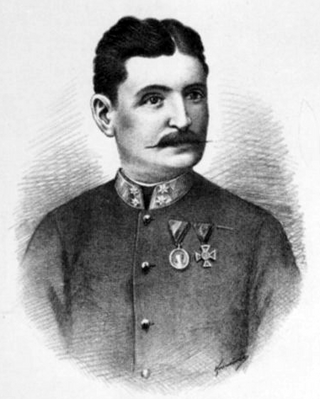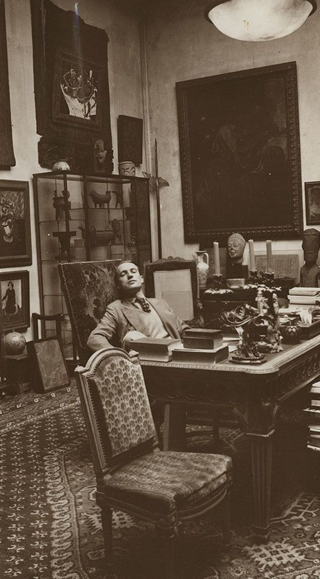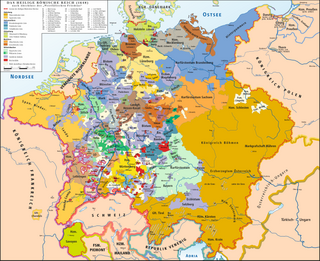
Maria Theresa I was ruler of the Habsburg dominions from 1740 until her death in 1780, and the only woman to hold the position suo jure. She was the sovereign of Austria, Hungary, Croatia, Bohemia, Transylvania, Mantua, Milan, Galicia and Lodomeria, the Austrian Netherlands, and Parma. By marriage, she was Duchess of Lorraine, Grand Duchess of Tuscany, and Holy Roman Empress.

Josip Runjanin, born Josif Runjanin, was an Austrian career military officer, politician and composer of Serb origin best known for composing the melody of the Croatian national anthem, Lijepa naša domovino, in 1846.
The White Horse Inn is an operetta or musical comedy by Ralph Benatzky and Robert Stolz in collaboration with a number of other composers and writers, set in the picturesque Salzkammergut region of Upper Austria. It is about the head waiter of the White Horse Inn in St. Wolfgang who is desperately in love with the owner of the inn, a resolute young woman who at first only has eyes for one of her regular guests. Sometimes classified as an operetta, the show enjoyed huge successes in the West End, as a Broadway version, and was filmed several times. In a way similar to The Sound of Music and the three Sissi movies, the play and its film versions have contributed to the popular image of Austria as an alpine idyll—the kind of idyll tourists have been seeking for almost a century now. Today, Im weißen Rößl is mainly remembered for its songs, many of which have become popular classics.

Eisbrecher is a German Neue Deutsche Härte band founded by Alexander Wesselsky and Noel Pix after their departure from Megaherz, with the founders describing their music style as "modern, electronic trip-rock". The band consists primarily of Alexander Wesselsky (vocals) and Rupert Keplinger (bass), with live support from Jürgen Plangger, Marc "Micki" Richter, and Achim Färber (drums). In the United States and Canada, their record label is currently Metropolis Records.

The band Killerpilze is a German pop rock/pop punk band from Dillingen an der Donau, Germany.

Count Karl Sigmund von Hohenwart was an Austrian politician who served as Minister-President of Austria in 1871. Hohenwart’s government attempted to implement a Federalist agreement between Bohemia and the governing Austro-Hungarian Empire. This attempt to conciliate the Bohemian Czechs caused massive criticism, and led to the fall of the Hohenwart government only months after it assumed office.
Ursprung Buam is an Austrian folk music trio from Zillertal, Tyrol. One of the most popular touring groups in Austria, Ursprung Buam often tours Germany, many places across the European Union, as well as the Tirolean festival scene. They have had over twenty releases since 1998. Most of these albums have held strong positions on the Austrian popular music charts. The group consists of brothers Martin Brugger and Andreas Brugger and their older cousin, Mannfred Höllwarth. Founded in 1993, the trio is widely considered Austria's number-one folk music group; in 2001, the group won the Austria Music Award - Amadeus in recognition of its status. On 12 March 2011 they performed "Grande Canale" as Musikantenstadl celebrated their 30-year anniversary of being on TV.
"A Gold Slipper" is a short story by Willa Cather. It was first published in Harper's in January 1917.

Geld oder Leben! is an album by the Austrian band Erste Allgemeine Verunsicherung.

Alphonse Kann was a prominent French art collector of Jewish heritage. He was a childhood playmate and adult friend of the writer Marcel Proust, who incorporated several of Kann's features into the character Charles Swann.
Ina Wolf is an Austrian singer and composer.

Marianne Mendt is an Austrian jazz singer and actress, best known for her participation in the 1971 Eurovision Song Contest.
Wyn Hoop is a German singer, birth name Winfried Lüssenhop, best known for his participation in the 1960 Eurovision Song Contest.
Anja Milenkovič is a Slovenian footballer who plays for LUV Graz of the Austrian ÖFB-Frauenliga and the Slovenia national team. She has previously played in the Italian Serie A, for UPC Tavagnacco and Chiasiellis.

Joseph Gregor was an Austrian writer, theater historian and librettist. He served as director of the Austrian National Library.

Süßer Trost, mein Jesus kömmt, BWV 151, is a church cantata by Johann Sebastian Bach. He composed it in Leipzig for the third day of Christmas and first performed it on 27 December 1725.

Alec Kann is an American professional soccer player who plays as a goalkeeper for Major League Soccer club FC Cincinnati.

Wolfgang Sobotka is an Austrian teacher, conductor and politician of the Austrian People's Party (ÖVP) who served as the president of the Austrian National Council from 2017 until 2024.
Eduard Kann was an Austrian banker and a specialist in Chinese numismatics. His book The Currencies of China (1926) was "immediately the standard work on the subject of metallic currencies in China"

The Erblande of the House of Habsburg formed the Alpine heartland of the Habsburg monarchy. They were the hereditary possessions of the Habsburgs within the Holy Roman Empire from before 1526. The Erblande were not all unified under the head of the dynasty prior to the 17th century. They were divided into several groupings: the Archduchy of Austria, Inner Austria, the County of Tyrol, and Further Austria.












